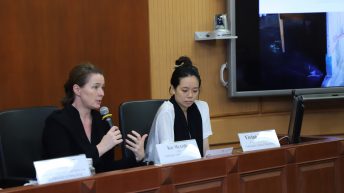Date: 12Feb 2019
Revisiting Social Reproduction: Migrant Care Workers & their Entitlements in Canada by Supriya Routh (Faculty of Law, University of Victoria)
This paper questions the temporary/permanent dichotomy with respect to migrant workers’ legal entitlements. With particular reference to the Canadian Caregiver Program, contended to be one of the best temporary migrant worker programs globally, it is argued that any caregiver program should see caregivers—irrespective of their local or foreign origin—as fully contributory members of society and thereby entitled to a full range of citizenship rights and entitlements. The paper offers a regulatory justification for migrant caregivers’ claims for full socio-economic citizenship rights and entitlements, developing this justification by drawing on—and reconceptualizing—the economic productivity-focused social reproduction perspective. In proposing a theoretical reconceptualization of socially reproductive work and evaluating migrant care workers’ entitlements in Canada, it will be shown that, on the basis of social reciprocity, caregivers cannot be considered temporary insofar as their entitlements are concerned.
Supriya Routh is Assistant Professor of Law at the Faculty of Law, University of Victoria. Supriya was previously Assistant Professor at the West Bengal National University of Juridical Sciences, and has held research positions at the University of Laval, Nantes Institute for Advanced Study, and Humboldt University. Supriya is author of Enhancing Capabilities through Labour Law: Informal Workers in India, Routledge, 2014, and academic journal articles in the areas of labour law, informal workers, trade unionism, law and development, corporate social responsibility, right to information, and legal education. He is the co-editor (along with Vando Borghi) of Workers and the Global Informal Economy: Interdisciplinary Perspective, Routledge, 2016.




